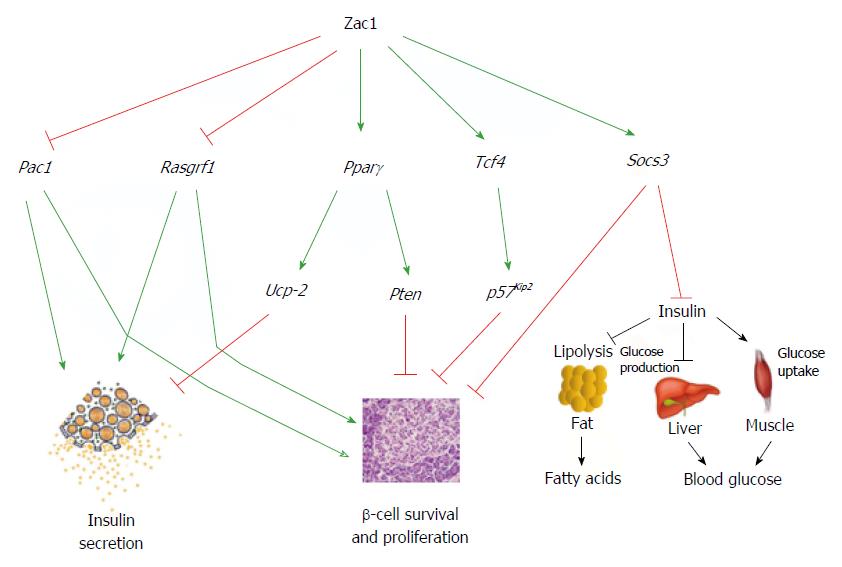Copyright
©The Author(s) 2015.
World J Biol Chem. Aug 26, 2015; 6(3): 95-109
Published online Aug 26, 2015. doi: 10.4331/wjbc.v6.i3.95
Published online Aug 26, 2015. doi: 10.4331/wjbc.v6.i3.95
Figure 3 Integrated model of Zac1’s role in β-cell function and glucose metabolism.
Zac1 DNA-binding at downstream target genes confers transcriptional activation or repression in a partly tissue-specific manner in mice. In this respect Zac1 binding represses Pac1 and Rasgrf1 in pancreatic β-cells leading to an impaired insulin-secretory response and GSIS (left). Additionally, Zac1 upregulation of the transcription factors Pparγ and Tcf4 may translate in enhanced expression of their downstream targets Ucp-2, Pten, and p57Kip2 with an inhibitory role in GSIS and β-cell proliferation (middle). Moreover, Zac1-dependent transactivation of Socs3 may attenuate growth factor and insulin signaling in β-cells and peripheral tissues, respectively (right).
- Citation: Hoffmann A, Spengler D. Role of ZAC1 in transient neonatal diabetes mellitus and glucose metabolism. World J Biol Chem 2015; 6(3): 95-109
- URL: https://www.wjgnet.com/1949-8454/full/v6/i3/95.htm
- DOI: https://dx.doi.org/10.4331/wjbc.v6.i3.95









